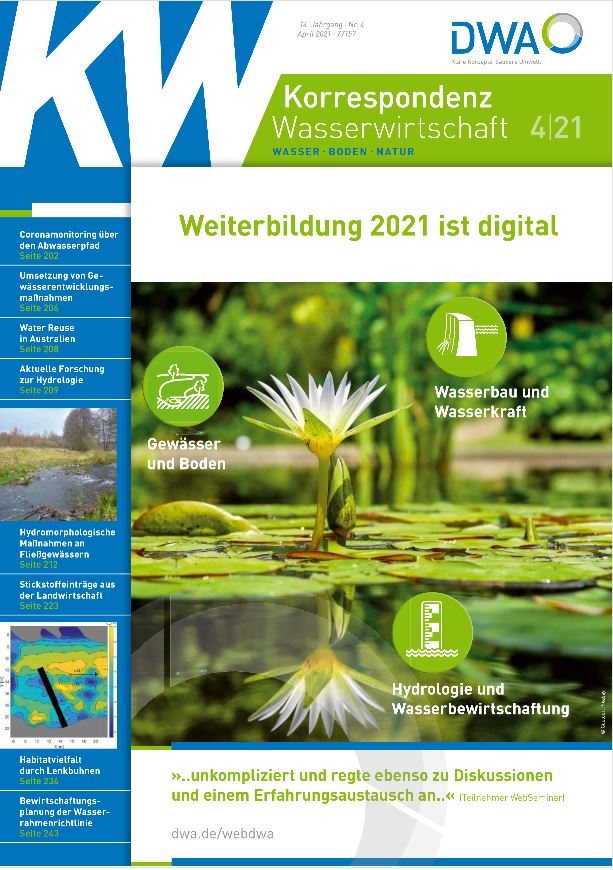Überprüfung der Auswirkungen des kooperativen Gewässerschutzes in Nordrhein-Westfalen
- Publication
- Citation
Vidaurre, Rodrigo; Hannes Schritt; Ana Frelih-Larsen et. al. 2020: Überprüfung der Auswirkungen des kooperativen Gewässerschutzes in Nordrhein-Westfalen. Ecologic Institute, HYDOR Consult: Berlin.
Drinking water protection in North Rhine-Westphalia is based on mandatory requirements as well as voluntary measures agreed on between farmers and water suppliers. A study conducted by Ecologic Institute and HYDOR Consult for the Ministry of the Environment, Agriculture, Nature Conservation and Consumer Protection in North Rhine-Westphalia (NRW) evaluated the outcomes of drinking water protection within the framework of the cooperative water protection model in NRW.
The study analysed the impacts of the agricultural water protection measures implemented in the cooperative approach, e.g. with regard to their potential for reducing nitrogen leaching into groundwater and regarding the level of acceptance among farmers. The study area consisted of 18 drinking water cooperations covering 20 drinking water protection zones. In two of these zones raw water is obtained from reservoirs; in the remaining it is abstracted from groundwater. Depending on the type of raw water used and the data collected in the cooperation, the measures were evaluated on the basis of nitrogen and pesticide levels in soil, near-surface groundwater, raw water and surface waters. The results are summarized in the final report and annexes (Annex I, Annex II) [only available in German].
Study results
The impact of the cooperative measures was estimated, based among others aspects on soil nitrogen contents in autumn ("autumn Nmin" or "residual Nmin", expressed in kg N/ha), with the following results:
- Overwintering catch crops: In two drinking water protection zones, the data made possible multi-year "with/without" comparisons for overwintering catch crops, with estimated effects of ca.30 kg N/ha and just below 50 kg N/ha, respectively, for those years in which overwintering catch crops were sown. After comparing with similar impact values from literature, a multi-year average reduction effect of between 20 and 55 kg N/ha is assumed (depending on location factors such as cultivation history, soil type, and type/amount of fertilizer applied).
- Summer catch crops: The same type of analysis for a summer catch crop (also known as a "60-day catch crop") showed a reduction effect of between 20 to 40 kg N/ha.
- Bonus payment model: For drinking water protection zones with a so-called "bonus payment model", in which compensation payments are made to farmers based on the autumn Nmin-level achieved on their fields, reduction effects of 10 to 36 kg N/ha were identified (this reduction was estimated as average reduction for each year, and is not limited to those years in which catch crops are sown). With the financial support provided by the bonus payment model, it is entirely up to the farmers how they choose to minimize their autumn Nmin-levels.
- Advisory services: The effect of pure advisory services (without financial compensation for implemented measures) was estimated as between 5 and 20 kg N/ha per year in the study region.
The study of the hydrochemical parameters lead to the following results for the analysed measures:
- Advisory services: approx. -1 mg/l decrease in nitrate concentration per year at high concentration levels of 70 to 140 mg/l.
- Advisory services + catch crops: approx. -1 mg/l decrease at levels up to 180 mg/l.
- Bonus payment model: -0.5 to -3 mg/l decrease at levels up to 220 mg/l.
The results achieved were dependent on the nitrate concentration levels in groundwater.
Study recommendations
The consortium also developed a number of recommendations. These relate, on the one hand, to the future implementation of cooperative work in NRW, and, on the other, to additional programmes of measures and action strategies, in particular related to the implementation of the Water Framework Directive and the design of agricultural subsidy programmes. Several of these recommendations, including recommendations related to field trials, success monitoring and improved data exchange in cooperative work, were taken up in the new edition of the 12-point programme for cooperative work in North Rhine-Westphalia signed in March 2021, which sets out the basis for future collaboration between farmers and drinking water companies in NRW.




